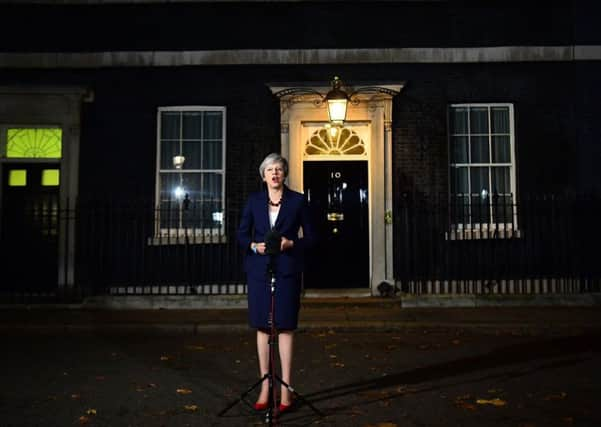The Yorkshire Post says: Real Brexit battle now begins for Theresa May to avoid David Cameron's fate


She is treading the same path as her predecessor David Cameron, whose hopes of securing a renegotiation of Britain’s relationship with the European Union just two years ago ended with little of meaning being achieved, resulted in a furious backlash from Conservative backbenchers and paved the way for the Brexit referendum result - and Mr Cameron’s resignation - later that year.
Disappointment with what Mr Cameron had secured - after initially suggesting in 2013 he might be able to curb free movement before watering down his proposals to limiting benefits for migrants and then being forced into further compromise on that and other issues - provided Leave campaigners with an open goal as they pointed out, with justification, that he had asked for little and come back with less from an inflexible EU.
Advertisement
Hide AdAdvertisement
Hide AdMrs May’s challenge is of a different scale entirely as she attempts to disentangle the UK from a union made up of 27 other nations and with which Britain has had an economically interdependent relationship for decades. With little over four months until Britain departs the EU, the stakes for this country are inestimably higher than they were under Mr Cameron.
While Mrs May has attempted to secure a withdrawal agreement in the national interest which strikes a balance between enacting the result of the referendum while protecting the economy, there is understandable anguish about the prospect of the UK signing up to arrangements which would result in it taking rules from the EU while having no say in them.
Despite reports of an imminent leadership challenge circulating last night, Mrs May managed to pass the major obstacle of persuading cabinet ministers to back her plan following a five-hour meeting. But at Prime Minister’s Questions, Conservative backbencher Peter Bone warned Mrs May of what is to come. “If the media reports about the EU agreement are in any way accurate you will not be delivering the Brexit people voted for and today you will lose the support of many Conservative MPs and millions of voters across the country,” he said.
The apparent available options are distinctly unappealing; accepting an imperfect deal inferior to the UK’s current membership arrangements, risking potentially dire economic consequences with no deal or ordering what would be a bitterly divisive second referendum. Striking an alternative deal with the EU would almost certainly require delaying the UK’s departure date - something that in itself would require further negotiations with Brussels.
Mrs May has managed a considerable achievement in getting her withdrawal plans to the stage where they will go before Parliament. But she will be under no illusion that the real battle now begins.